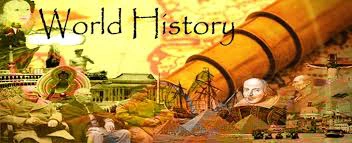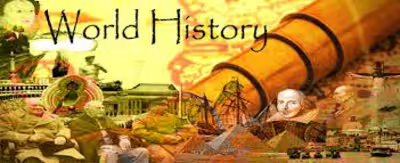HISTORY OF THE WORLD
World History: Unraveling the Tapestry of Human Civilization

History, the reflection of humankind's past, serves as a crucial roadmap that guides us through the present into the future. The annals of our collective chronicle offer invaluable insights into the politics, cultures, and continents that have shaped our world. This article embarks on a captivating journey, exploring the multifaceted tapestry of world history.
Integral to understanding the intricacies of world history is appreciating the diverse perspectives of different continents and cultures. Each corner of the globe holds a unique vantage point, contributing to the rich and vibrant mosaic that is human civilization. From the early civilizations of Mesopotamia to the mighty Roman Empire, history has unfolded across continents with its own chapters and narratives, each deserving of exploration.
Europe, often hailed as the cradle of Western civilization, witnessed the rise of the white race. With its fascinating medieval dynasties, renaissance art, and tremendous political developments, Europe has played a pivotal role in world history. From the Roman Empire and the Age of Enlightenment to the World Wars and the formation of the European Union, Europe's track record encompasses the joys and sorrows of humanity.
As we turn our gaze towards Asia, another captivating narrative emerges. The Brown people, as they are often referred to, witnessed the rise and fall of ancient and powerful empires such as the Mauryas, Guptas, and Mughals. From Confucian philosophy in China to the samurai code of Bushido in Japan, Asia's cultural contributions have left an indelible imprint on global civilization. The Silk Road, connecting the East and West and fostering trade and cultural exchange, stands as a testament to Asia's influence throughout world history.
Stepping onto the African continent, we encounter a remarkable tale of resilience and strength. Here, the black people rose to prominence, leaving an impact that reverberates to this day. Ancient empires such as Nubia, Ghana, and Mali flourished, showcasing the intellectual, artistic, and architectural marvels of African civilizations. Furthermore, the struggles against colonialism and apartheid in South Africa provide a stirring reminder of the battles fought for freedom and justice.
Beyond the politics and continental divisions lies yet another facet of world history: language. Various forms of communication have shaped the course of civilizations, fostering cultural exchange and facilitating complex societal structures. From the ancient hieroglyphics of the Egyptians to the intricate grammar of Latin, languages have evolved and transformed, reflecting the stories and nuances of different cultures across the globe.
In conclusion, the tapestry of world history unravels across the vast expanse of our planet, encompassing politics, continents, cultures, and languages. From the rise of different races in different regions to the cultural contributions of Europe, Asia, and Africa, the collective narrative of humanity demands our attention and appreciation. Every chapter in this grand story is essential, and it is through understanding our past that we can navigate our present and shape our future. As we delve into the intricate details of world history, we deepen our understanding of who we are and the rich tapestry of human existence.
Like this project
Posted Dec 11, 2023
World History: Unraveling the Tapestry of Human Civilization History, the reflection of humankind's past, serves as a cruci...





